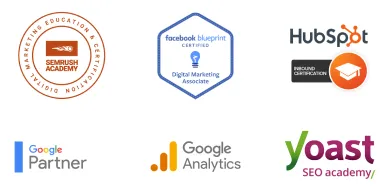TO LEARN IS TO GROW
Learning Center
We do our research and publish our results. Should probably call this the Growing Center.


What is Malware?
Why you should know what Malware is and how it can impact your website:
Did you know that according to major internet security firms, in 2015 alone there were nearly 1 million new malware threats released every day? In all likelihood, that number has continued to grow over the last two years, but what does this mean for you and your business website?
Malware is a term that is short for malicious software, and it refers to the number of ways that cyber criminals hack/steal/infect our computers, and ultimately our websites and sensitive data. There are a variety of types and purposes of malware but no matter how it manifests itself, malicious software can cause serious damage to your website, and more importantly to your visitors and customers.
Are malware and viruses the same thing?
In essence, yes, a virus is type of malware; in other words, malware is a general term that applies to all the different types of harmful or invasive software, with a virus being one example of malware.
The reason that this particular malware software is called a virus is because it works similar to the way that a virus does in your body, by infecting the good cells, and spreading and taking over the whole body. A website virus can literally spread from your website to other computers and sites, by infecting files it comes in contact with, and hiding in email attachments and other web advertisements that can end up crashing your site.
Other types of malware include:
-Trojan Horse: Relies on the use of a disguise, such as a legitimate looking file or attachment, in order to gain access to your website or computer, and then once it is in, it can destroy or delete files and perform other compromising acts without being noticed by the owner.
-Backdoors: Type of malware that bypasses standard authentication process to gain access to a computer without using the proper channels using a network connection. Once a backdoor has been established, the system can continue to be compromised unbeknownst to the user.
-Adware:While this type of malware presents as annoying ads popping up across your screen, the real purpose of this malicious software is to track your browsing history with the goal of sending that information back to the website owner so they can deliver ads based on that data.
How does my site become infected with Malware?
Being able to successfully use malware on a website depends largely on how many vulnerabilities are present on that site, because once a cyber criminal detects that a website is loaded with vulnerable aspects, they can then decide which type of malware will be the most effective at invading the system.
Without going into too much detail, a vulnerable website is typically one that is rich in features, like offering photos, videos, and other dynamic tools used to engage visitors. Unfortunately, the more features your website has, the more vulnerable it could be to potential malware infections.
The website’s server can also be hit with malware that can ultimately spread to your site as well, with some malware infections even going so far as to spread the malware to visitors.
A malware infection on your website can result in:
Some of the intended purposes of malicious software used by cyber criminals include things like: stealing of confidential data like credit card numbers, SSN, etc; compromise or steal login information from site users; create spam; boost the search engine optimization rankings of a competitor’s site; make illegal purchases using user information; even hack into a visitor’s personal computer.
Now that you have a better idea of what malware is and the potential consequences of having malware infect your website, you can see how important it is to work with a web developer who has experience with handling all types of malicious software. If you have concerns about how malware could be affecting your website, our LOJO development team would be more than happy to answer your questions.
Written by Cassandra Sohn

What is Malware?
Why you should know what Malware is and how it can impact your website:
Did you know that according to major internet security firms, in 2015 alone there were nearly 1 million new malware threats released every day? In all likelihood, that number has continued to grow over the last two years, but what does this mean for you and your business website?
Malware is a term that is short for malicious software, and it refers to the number of ways that cyber criminals hack/steal/infect our computers, and ultimately our websites and sensitive data. There are a variety of types and purposes of malware but no matter how it manifests itself, malicious software can cause serious damage to your website, and more importantly to your visitors and customers.
Are malware and viruses the same thing?
In essence, yes, a virus is type of malware; in other words, malware is a general term that applies to all the different types of harmful or invasive software, with a virus being one example of malware.
The reason that this particular malware software is called a virus is because it works similar to the way that a virus does in your body, by infecting the good cells, and spreading and taking over the whole body. A website virus can literally spread from your website to other computers and sites, by infecting files it comes in contact with, and hiding in email attachments and other web advertisements that can end up crashing your site.
Other types of malware include:
-Trojan Horse: Relies on the use of a disguise, such as a legitimate looking file or attachment, in order to gain access to your website or computer, and then once it is in, it can destroy or delete files and perform other compromising acts without being noticed by the owner.
-Backdoors: Type of malware that bypasses standard authentication process to gain access to a computer without using the proper channels using a network connection. Once a backdoor has been established, the system can continue to be compromised unbeknownst to the user.
-Adware:While this type of malware presents as annoying ads popping up across your screen, the real purpose of this malicious software is to track your browsing history with the goal of sending that information back to the website owner so they can deliver ads based on that data.
How does my site become infected with Malware?
Being able to successfully use malware on a website depends largely on how many vulnerabilities are present on that site, because once a cyber criminal detects that a website is loaded with vulnerable aspects, they can then decide which type of malware will be the most effective at invading the system.
Without going into too much detail, a vulnerable website is typically one that is rich in features, like offering photos, videos, and other dynamic tools used to engage visitors. Unfortunately, the more features your website has, the more vulnerable it could be to potential malware infections.
The website’s server can also be hit with malware that can ultimately spread to your site as well, with some malware infections even going so far as to spread the malware to visitors.
A malware infection on your website can result in:
Some of the intended purposes of malicious software used by cyber criminals include things like: stealing of confidential data like credit card numbers, SSN, etc; compromise or steal login information from site users; create spam; boost the search engine optimization rankings of a competitor’s site; make illegal purchases using user information; even hack into a visitor’s personal computer.
Now that you have a better idea of what malware is and the potential consequences of having malware infect your website, you can see how important it is to work with a web developer who has experience with handling all types of malicious software. If you have concerns about how malware could be affecting your website, our LOJO development team would be more than happy to answer your questions.
Written by Cassandra Sohn
Growing Businesses Since 2008
We have helped hundreds of businesses just like yours. Working for or along-side of business owner, managers, staff, or even board of directors, LOJO is ready to be an asset to your business.
Our team has been curated through the years for individual skills, personalities, and capabilities. Our clients put their trust in us to help them grow. We are here to do just that.



Growing Businesses Since 2008
We have helped hundreds of businesses just like yours. Working for or along-side of business owner, managers, staff, or even board of directors, LOJO is ready to be an asset to your business.
Our team has been curated through the years for individual skills, personalities, and capabilities. Our clients put their trust in us to help them grow. We are here to do just that.




Matthew Rogers, President
iProspect Check
After spending several months reviewing multiple proposals from several different companies we engaged LOJO to develop a new website that represents our company effectively. We worked initially with Stephen Platte who helped create the scope of the project. Stephen was knowledgeable and always followed up with me on time and as promised.
He "closed the deal" for LOJO with his professionalism, service orientation and easy going approach. Once we signed the contract we were introduced to Jay Kelly who would be the creative lead for LOJO. This was the most challenging part of the project for my company, as there was no shortage of ideas from our side. Jay managed the project flawlessly, and once we had all agreed to the design, Jay introduced us to Eric.
Eric Lay is one of the founders of LOJO. Eric took the design we had developed and brought it to life. We delivered content as quickly as he requested it. Eric kept the project on task and we responded by exceeding every deadline for content. In turn, once provided, literally not a day went by that Eric didn't add the content and take the next step. In just a few weeks we launched our new website. Eric is a pleasure to work with.
His positive attitude and consultative approach really enhanced the experience and made a big difference for us in the outcome of our project. We would welcome you to visit our website to take a look at the quality work of LOJO. We are very pleased with LOJO and look forward to working with them in the future as we pursue an aggressive SEO strategy."
After spending several months reviewing multiple proposals from several different companies we engaged LOJO to develop a new website that represents our company effectively. We worked initially with Stephen Platte who helped create the scope of the project. Stephen was knowledgeable and always followed up with me on time and as promised.
He "closed the deal" for LOJO with his professionalism, service orientation and easy going approach. Once we signed the contract we were introduced to Jay Kelly who would be the creative lead for LOJO. This was the most challenging part of the project for my company, as there was no shortage of ideas from our side. Jay managed the project flawlessly, and once we had all agreed to the design, Jay introduced us to Eric.
Eric Lay is one of the founders of LOJO. Eric took the design we had developed and brought it to life. We delivered content as quickly as he requested it. Eric kept the project on task and we responded by exceeding every deadline for content. In turn, once provided, literally not a day went by that Eric didn't add the content and take the next step. In just a few weeks we launched our new website. Eric is a pleasure to work with.
His positive attitude and consultative approach really enhanced the experience and made a big difference for us in the outcome of our project. We would welcome you to visit our website to take a look at the quality work of LOJO. We are very pleased with LOJO and look forward to working with them in the future as we pursue an aggressive SEO strategy."

Matthew Rogers, President
iProspect Check
The team at LOJO were wonderful to work with. They are well organized and very patient as we worked through our marketing strategy and developed a well thought out and clear action plan at a reasonable price. We will definitely be back for our future campaign needs."

Jon Crosby, Founder
Dazil

